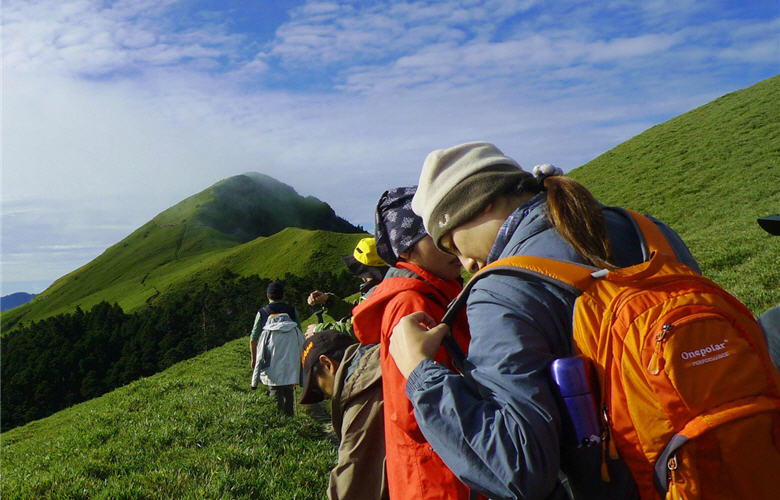
However busy I am, education is always my top priority. I'll make time for my students whenever they need to speak to me.
-Prof. Chang-yi Chang
Nat'l Taiwan Univ.(NTU) professor emeritus Dr. Chang-yi Chang is described by his former student Prof. Chin-cheng Ni as the incubator and nurturer of Taiwan's contemporary environmental protection awareness. Chang has also played a prominent role in the development of the country's national parks.
Devoted to over three decades of service in Taiwan since his return from studying abroad in 1967, no frustration had been great enough to breed despair for Chang because for him, “environmental protection is a life-long calling; the faith to carry on comes from within, not outward success or failure.”
“However busy I am, education is always my top priority. I'll make time for my students whenever they need to speak to me.”
Throughout his many years of professorhood, Chang has remained faithful to prioritizing education and his students above anything else. He has been a teacher, father, and friend to many experts and scholars still serving in various fields and working to promote environmental protection. Chang had been an influential figure during their years at school.
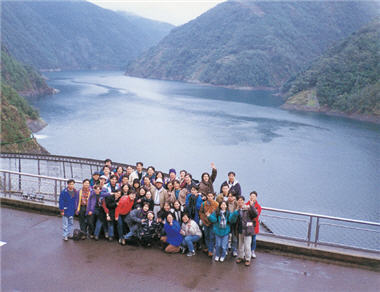
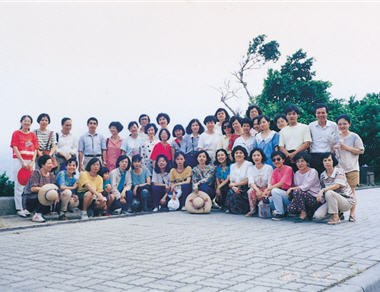
Interview & Text /Wei-ting Lin
Special thanks to/ Research Assistant Ms. Ling-yu Xu of Department of Geography of National Taiwan University
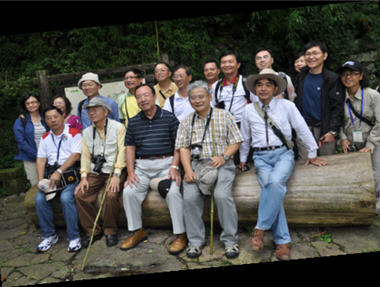
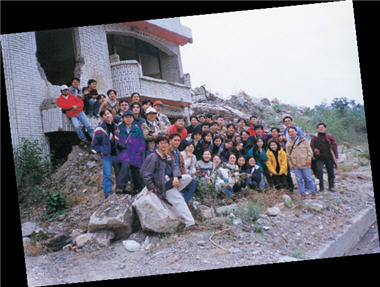
Stressing in his pedagogy the harmonious utilization of resources, or what is called “man-land relationship” in geography, Chang organized frequent field studies to give his students first-hand experiences. Believing that insights only come with having been there, Chang led a team of students to Pu-li after the 921 Earthquake so as to allow them to see for themselves the destructive power of earthquakes; to survey coastal resources, he took them on a trip to the seashore. The field studies held all these years are printed not just in the photos taken, but in the spirit and learning experiences of each and every one of his students.
“I am fortunate to have had these students, each of them having their own strengths and being capable of working independently to shine in their respective fields.” Despite having trained countless outstanding professionals, Chang attributes it all to luck. “I see my students as friends once they graduate. They know well my beliefs, and I trust that they will work to follow the right paths. My sole expectation for them is that they would surpass my achievements, pressing on to promote Taiwan's environmental protection.”
left; padding: 9px;" width="310">If national parks are analogous to an academy, then Chang had taught an infinite number of credits in it.
“Taiwan's national parks are definitely above par, comparable to their international counterparts,” Chang firmly asserts, not holding back his pride. He had participated in the survey and planning for Kenting National Park back in 1980, pushing for the founding of the National Parks Division. And when the division was finally launched in 1982, he assisted with the establishment of the Yangmingshan and Yushan national parks.
After all these years, Chang continues to call for a national park service/Agency. He had already appealed for the integration of existing environmental protection departments in Science Monthly back in 1982. “National land planning is a premise for environmental protection. Sustainable land planning can never be achieved if the jurisdiction remains scattered among the different departments.” In a time and age when environmental protection awareness was in its infancy, Chang's sense of urgency and vision was well worth respect.
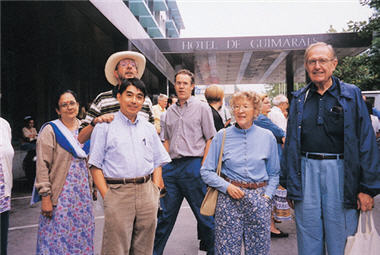
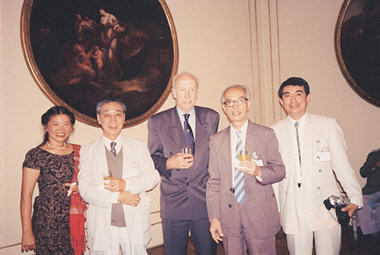
“The founding of an environmental and natural resources department and a national park service/agency will bring about long-lasting and pivotal breakthroughs in sustainable land use and management,” observes Chang. “National parks are the core of sustainable land development. The National Park Act, when amended, will give the future National Park Service/Agency jurisdiction over the national parks system, including the eight national parks, wetlands, nature parks, nature reserves, national scenic areas, etc. Our national parks will benefit from the integration of resources and management, and gain better visibility internationally.”
Amending the National Park Act is another major concern of Chang's. “After 40 years, the National Park Act is insufficient for dealing with arising new issues. Conflict with the inhabitants, for example, had not been an issue back then.” The establishment of national parks during the Martial Law era had been simple and fast. Kenting, Yushan, Yangmingshan, and Taroko national parks were founded within four years' time. Democratization gave voice to the people, giving rise to resistance whenever tribes are included in the area of national parks.
The projects of Lanyu, Nengdan, Magao, and Ludao national parks were all aborted due to local protests. Chang believes that proper amendments of the Act will enable communication, helping the inhabitants to understand that national parks will protect the land of their ancestors from exploitation. Partnership with the local residents should be established to ensure sustainable development and a win-win situation.
Chang had officially retired this August. But it is evident that his work will not end here. “Environmental protection is a life-long calling,” he said. Fortunate for the island, he will not be absent as Taiwan journeys on towards a better protection for its environment. Chang has never endeavored to earn praise and glory, but it is just for this reason that he should be given all the more respect and honor from all of us.

Bachelor's degree from Department of Geography, National Taiwan University; master's degree in Geography from Texas A & M University, USA; Ph.D. in Geography from the University of Texas- Austin; Chair of the Department of Geography, National Taiwan University; Asia-Pacific representative for Marginal Region Academic Committee of International Geographical Union; President of International Geographical Union National Committee, China-Taipei; Director-General of Geographical Society of China located in Taipei. Had officially retired from NTU this year, Chang is currently President of Institute of Environment and Resources.
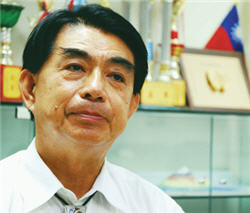


![Text size [Small]](/media/system/images/font_small.jpg)
![Text size [Medium]](/media/system/images/font_normal.jpg)
![Text size [Large]](/media/system/images/font_big.jpg)





